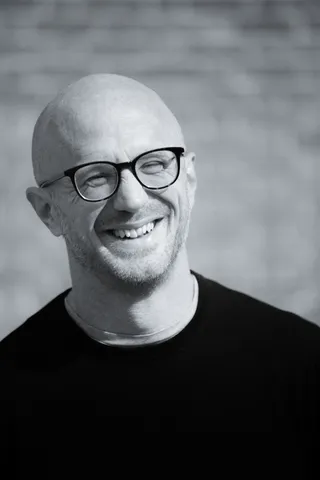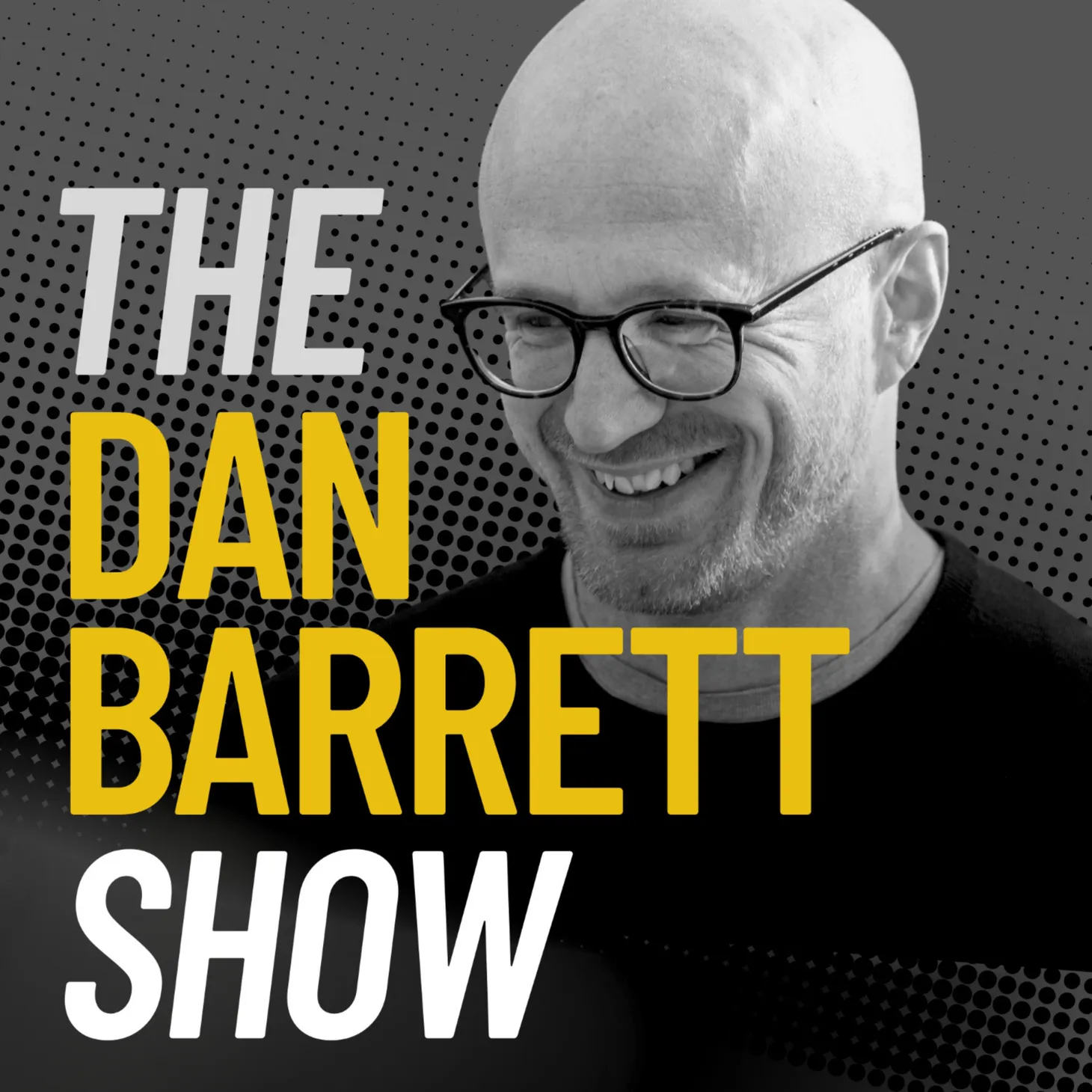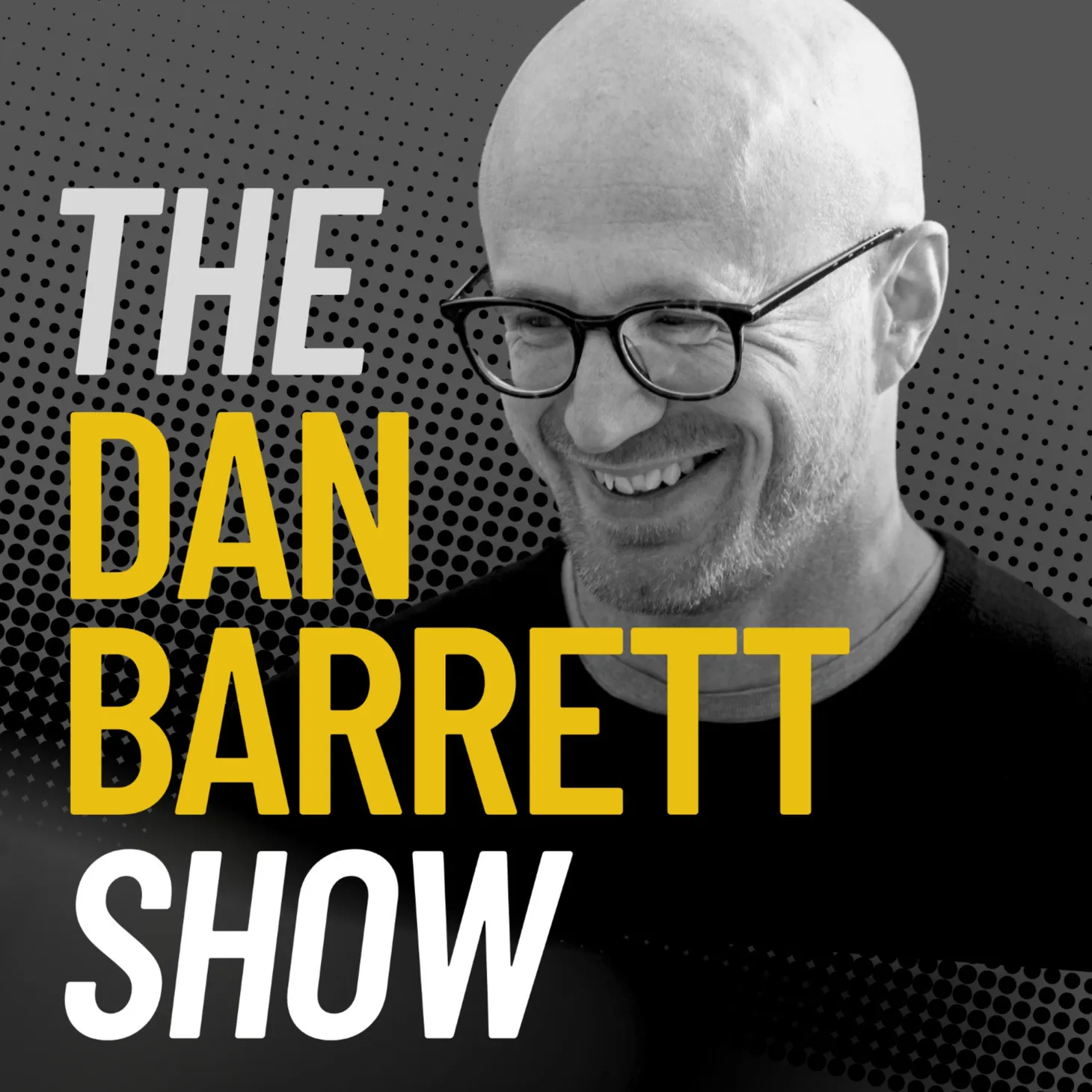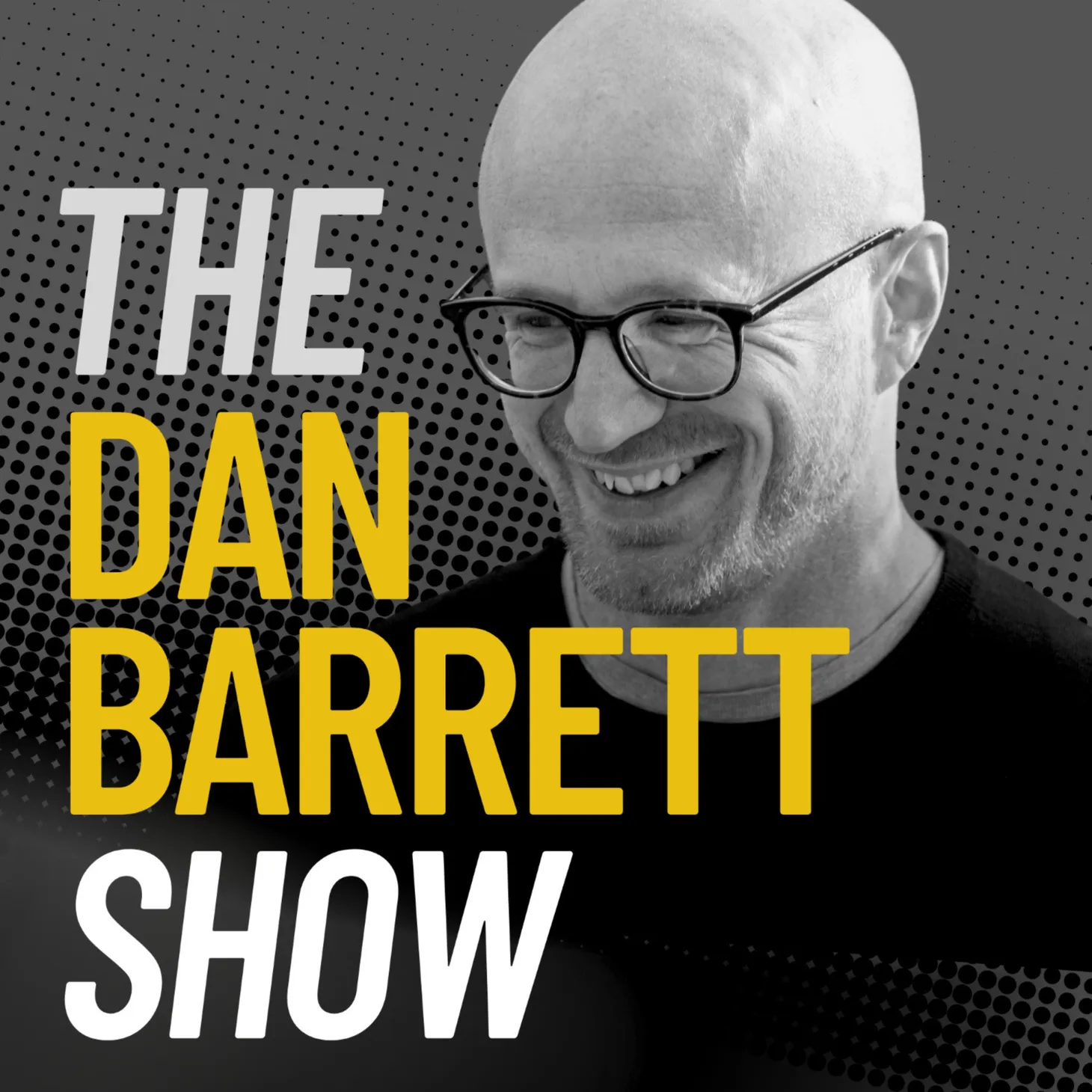Finding Your Grit with Richard Walsh, Part 1
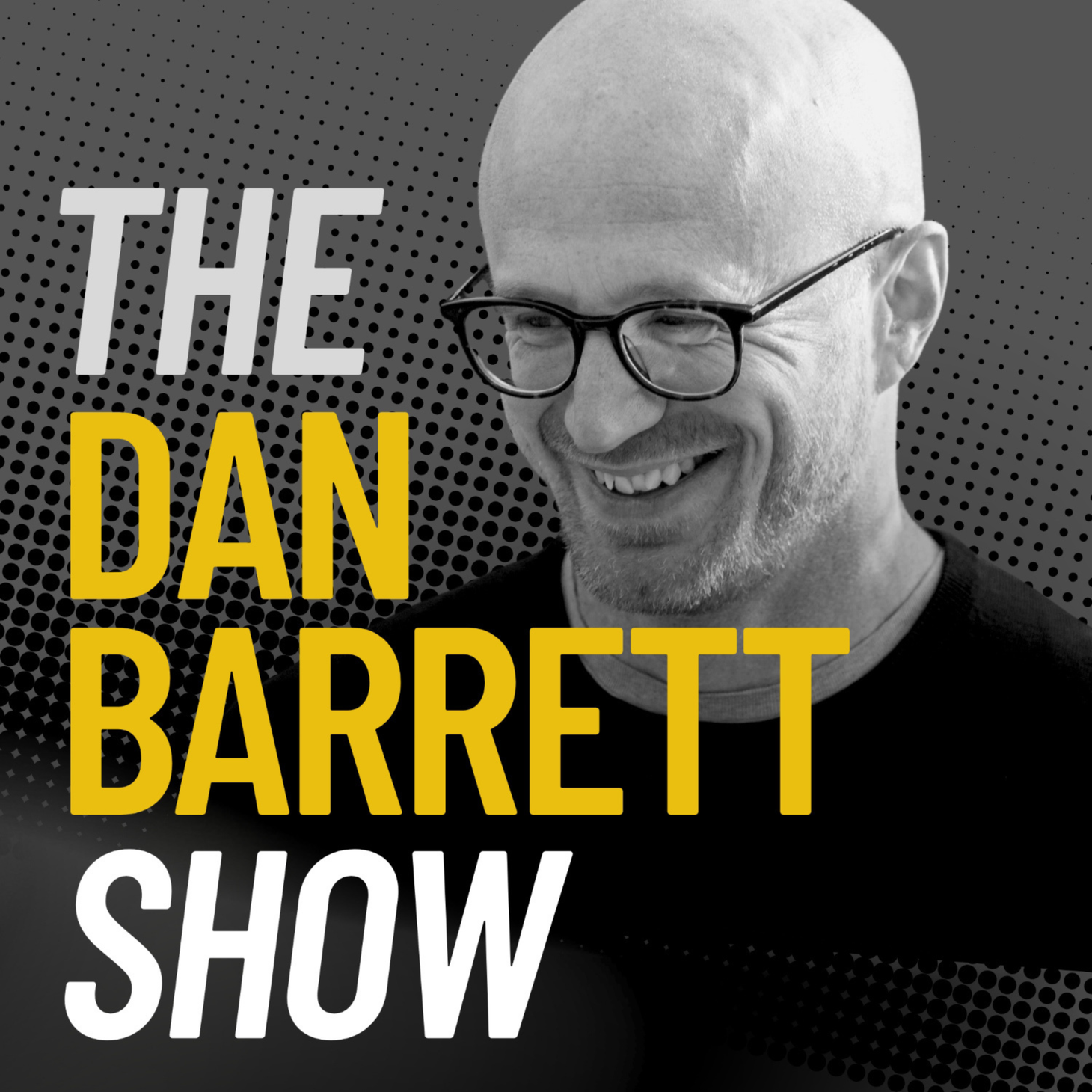
This week, we're featuring Richard Walsh, the mastermind behind Sharpen the Spear Coaching. With a wealth of experiences to draw from, Richard helps small business owners make significant changes without spending any extra money.
His unique approach combines a warrior's mentality with smart business strategies, making this conversation an insightful experience for entrepreneurs at any stage.
Tune in as we explore the art of balancing personal grit with professional acumen, guided by Richard's fascinating journey and seasoned advice.
Show Highlights:
- Discover what it takes to be a coach [02:18]
- Learn about the concept of sharpening the spear [03:51]
- What do martial arts teach about running a business? [05:48]
- Discover Richard’s journey of resilience and reinvention [07:47]
- How are fitness and leadership connected? [12:11]
- Learn the importance of building routines and methods [14:18]
- This is how you can alleviate anxiety [15:20]
- The most common mistake business owners make [17:05]
For more updates and my weekly newsletter, hop over to https://betterquestions.co/
To learn more about Richard Walsh, check out the websites below:
https://sharpenthespearcoaching.com/
Transcript:
0:10 All right, what is up, everybody? This is Daniel Barrett, and this is the Dan Barrett show. This is the podcast where we talk to some of the world's smartest, coolest, most awesome people and try to learn the best of what they know. I am the titular Dan Barrett, and super happy to have you here this week. I hope you're having a really good one this week, I have a really fun interview with Richard Walsh. Now, Richard is the CEO of sharpen the spear coaching. He is helping small business owners create freedom, profit and impact in their business. So he's a business coach. But the thing about Richard that is so fascinating to me is he has lived a very full life. He knows exactly who he is. He has got a personality for days, you know? I mean, he's like somebody who has a very strong take on a lot of different things, but he's bringing his varied background to what he does, and as a result, right at least, I found myself deeply connected to Richard during our interview. This was the first time we'd ever spoken. I find myself completely pulled into what he does. I found myself excited about the possibility of what he teaches. So let me just give you just a taste of Richard and who he is and what he does. So he's a 30 year seasoned entrepreneur, the best selling author of escape the owner prison. He is a speaker and a podcast host. He's a husband and father of six children. We didn't even get to that, but six children, I have two children. Six children is a lot, so that's amazing. He is a US Marine.
He's been a championship boxer, he is a black belt and he is an internationally recognized steel sculptor. This is somebody who knows a lot and has such a deep background in so many things. But the thing that's really awesome about Richard is, you know, there are a lot of people who have a lot of different things in their background, a lot of different things to teach. Richard knows how to talk about what he does. He knows how to get it across. He knows how to express it. He knows how to teach it. And you can tell that he knows how to coach which, again, you'll see this as a pattern that emerges in so many different things, where the ability to do the thing and the ability to coach someone and do the thing are very different, and it's rare to get both in the same person. Richard Walsh has that in spades. So this is such a fun interview. It's high energy. We go all over the place. I got a ton out of it, and I know you will too. So without any further ado, let's get into this conversation with Richard Walsh from sharpen the spear coaching. All right, what's up? I'm here with Richard Walsh from sharpen the spear coaching.com. I almost messed it up. We just talked about it. I almost messed it up. Look at that professionalism. Thank you so much for being on the show, my friend. I really appreciate it.
3:10 Well, Dan, it's great to be here, man. I'm excited. Yeah, sharpen the spirit. Coaching is simple, but not easy. It's Well, I was gonna say, but before we hit record, I like it because it's a cons. It's multiple words, but it's a concept, right? So all goes together, it makes sense. So actually, that's where I wanted to start, because I mentioned before where, before we got started, you've got a really interesting background. You're doing super cool things, like on the business side. We were just talking about this, you sort of help these businesses find huge amounts of profit in their business without spending anything extra. So there's a huge amount of value that I want to jump into. But before we do that, I want to start with sharpening the spear. Why sharpen the spear? What does that mean to you? Why did you choose that to be sort of the concept behind your coaching business?
3:57 Yeah, I think if you, you know, if you've, you've heard the bio, and I have a warrior mentality, okay? I'm a US Marine, a boxer, black belt, all that kind of stuff. Still train in the martial arts, you know, I hit the bag daily. I I shoot, I wrestle, I do all the good stuff, right? Because I'm a protector. But that spirit, that warrior spirit, for business, and I've been in business 35 years, right? I completely failed. That's my first 20 years, and I had to start over again. Over again. So I was completely defeated. Had to get back up and do it again. So as I developed my second and third business and wrote my best selling book on escape the owner prison, and then started helping other business owners, that mentality really came through. I mean, it's who I am. So that came through when I'm helping them. I'm very deliberate, highly accountable, very mission oriented, you know, understand the vision we accomplish what we set out to do. So that, to me, sharpen the spear, became that like what represents what I do, right? The spear, adult Spears not doing much, you know? So we went. Keep that we're honing entrepreneurial warriors on the battlefield of business. So that's what we're doing. So that's where it all kind of came together.
5:06 So let's, I mean, there's so much, there's so many places we could take that. But I did want to start with boxing and martial arts. I saw that mentioned on your bio. You mentioned wrestling. I am a fan of martial arts. I like watching mixed martial arts. I've dabbled in martial arts throughout my life, just as for fun, right? I've never really jumped from thing to thing, and I think there's so much that you could take from that. But I'm curious for you, what do you take from that in terms of your personal life or your business life? Like, do you see a cross over there in terms of the things that you need to have in order to be successful in that field versus the sort of business field? Or is it just, it's physical, it's a sort of a different part of your life. I really think
5:52 you can't you cannot separate the two. What I tell people, let's take boxing. Okay, I love boxing. Was the champion. There's four steps. You got to walk up to go in between their whoops and get in the ring. And I will tell you years of doing it every day, the longest four steps of my life, because soon as you step through you know what you're gonna get a beating every single day. And I do this like six days a week. Okay? I'm like, and I was like, Okay, here we go. Time for another beat. Now the bell rings. It's on. I forget about that, and I go through it. Now I have plates and wires. I have a new nose. I had seven breaks. My nose is detached in my face. It put that. I lost my whole cheekbone. They had to rebuild all that nerve damage, all that from those four steps every day over time, you know, starts to get you but it was that that facing it every day, that's business. Every day in business, you got to go up those steps. You got to step between the ropes, so you got to go to war. That really was it is because that's why I call it a battlefield, because how do you not it's it's more difficult than boxing, because it's like all day I get in there for three rounds, six rounds, eight rounds, done business every day, all day, eight hours, 10 hours, 12 hours. You know, every day it's seven days a week in your mind, even if you're not at the office, right? You are. You are consumed by this and this. What What up becoming the owner prison, right? That constant you being consumed all the time with one thing that you're doing. Now, I'm a big all or nothing guy, Dan, like I, I don't, kind of vacillate. I There's no gray area in my life, black, white. So when I get into something, I get into it. Yeah, I do it. I take it to its logical end. Okay?
7:42 I would never when this happened, my face. I was in a Golden Gloves tournament. First 10 seconds, and I'm the favorite. I'm, you know, I've already, I'm already the former champion all this next year. 10 seconds, little cheesy uppercut. It felt a guy throw me in my eye. There's not 10 Cent nothing. I just slipped. It felt like he pushed my and Allison, I couldn't feel left side of my face, so I dropped to a knee. I'm like, okay, something's wrong. And they count me out. And this guy thinks he did something. He's dancing around like he did something, and I want to smack him. So I went to the ring doctor who's on the edge. You know, again, we're talking amateur athletics, so I'm setting the scene here for you. So the old, Doc, he comes over and he's drinking like a scotch on ice in a plastic glass. Okay? He said, I go. I go, Doc, I can't feel the side of my face. He looks at me, and this whole thing's caved in. And he's like, Yeah, you broke your orbit. He goes, here. He finishes the drink. So you got ice in the cup. He hands it. He goes, put that on it and go to the hospital. So hold on my eye. And I'm like, drive to the hospital. Like, get my truck and I drive the HUD. And they go in the ER and they look at it. So you're driving the hot by the way, you drive into the hospital. So he give you his glass, like, glass, yeah, driving with a glass that had whiskey.
9:04 I know you didn't drink. And it's like 11 o'clock at night on a Saturday. Okay, in my F at my 79 f1, 50, you know what I mean? So I'm like, here we go. And then, you know, then the rest is history. But you know, it's that kind of thing is you don't know what's going to happen every single day. So you get in business. I mean, things can be a moment, and you can just, you can get laid out one thing. November 5, 2008 after the election, I lost a half a million dollars in one day. And it just kept going off the cliff from there. And that was the end of that business, right? One day, I'm going from the top, the best that I could be, you get wars, the publications, the everything that you're finished, you know? So that's, that's what we're up against out there. I mean, it's, it's interesting too, right? That the connection is interesting because, at least in boxing, and I've never boxed, although that's, that's kind of on my list. Of, like, the martial arts that I'm, like, really curious about, but I'm like, but this is the money maker. You know what? I mean, I don't want to mess this up, so that's like, but I'll just, I'll just hit you to the body. How about that? Yeah,
10:09 perfect. That'd be great. I can't wait. So, like, the, the interesting thing about the connection, right? Is, like, although you're, you're absolutely right, right? You're, you're walking up those steps, you do at least have some idea of the constraints around which the conflict is going to happen. Whereas in business, you have no idea what's going to it could just be, like, Yep, the car could drive through your retail location. Like, it's just it. There's a certain level of uncertainty to it. I'm curious, before we leave this topic, and I want to transition into your business experience, because you've, like, you said, You've been you've been high, you've been low, right? You've been doing this a long time. But I am curious, like, for the boxing, where is the joy in it for you, like, what keeps pulling you back? It's one thing to be like, you're able to take those steps, you're following it through, but there's got to be something in, in there that lights you up in order to kind of keep you there for so long. So what
11:03 is that? It's, and I'll tell you like it's, it's the training. The fight itself is kind of anti climactic for me. I love to push myself. I love to exert everything. So I still hit the bag. Yeah, this morning, right? I'll do eight rounds on the bag, three minute rounds. And I'm, I mean, nobody talks to me. Dan, okay, I'm a guy. The bag is an opponent, yeah, like, it's the opponent. I It's I have in. Obviously, the bag wins every day. Okay, everybody come back, but I unload, and you hear some sounds, and you hear me myself, okay? And I work, and there's just something about that exertion for an hour, you know that just it, whether it's the endorphin thing or however you want to explain it, for me, it's that constant challenge. Do I still have the skill set like for a guy my age, I'm still, I'm I'm dangerous. I want to be a I'm a dangerous gentleman. That's the classification. Okay, so, so that's what really keeps me going. And I think we can really get into it for you know, fitness as part of leadership is a huge component, right? We have a saying, if you're not fit, you're not fit to lead, right? And fitness is not just physical, right? You need to be mentally fit and everything else and that kind of stuff. To me, the exertion and training like that actually keeps my mind sharp. It's not something you shut your brain off and just go hard.
People don't really get it. They usually don't get it because they've never done it. But you understand there's a mental capacity to this that you have to be able to tie in to continue to do that one more round, to push hard the last 10 seconds of the round, not just coast, right, right? Like every i get a 10 second warning at the end of three minutes, and it's all out regardless of the route, always finish big. So you see, I can tie those things together, and that physical training for that doesn't same thing mentally, right? I'm always about finishing. You know, I don't like I train my son and cross country and track thing, if they, if I perceive, they slow down even a tiniest little bit before that finish line, stand by, you'll be doing burpees till you believe. And I see all the time guys slow down because they're like, they made it. You didn't make it. You haven't crossed it. Yeah, right. So there's a, there's, I think hopefully, that explains it. There's just a mentality to it that you have to build both physically and mentally. Well, I think we,
13:24 I think, I think we said this before we hit recording, but we were, you were talking about how the skill of forcing yourself to do the difficult thing is like a transferable skill. It almost doesn't matter the context, right? So showing up and we're like, I'm sure there's been a million days where you did not feel like hitting the bag and you went to go do it anyway. Right? For me, it's weird stuck about how cold it is. We're both. We are our gyms in the garage, and it's the last place I want to go. I don't. I didn't want to work out in the first place. It's 10 degrees. I don't, you know what I mean, like, it's a it's a lift just to get in there, but it's the whole the process of making yourself do it that shows up later, when you show up in the office and you're like, hey, I have to audit our expenses this week. And I don't like that, you know what I mean? And yeah, yeah, exactly right. Exactly right. We and we build routines and methods to accomplish that, like that going to the gym. My thing is, I'm committed to the warm up. That's it. Ah, so I'm committed to because, and then once I break that sweat in seven to 10 minutes. But every day I do the workout, they very really feel like terrible. I go home, right?
14:37 But if you do the work, if you do the warm up, yeah, 98% of the time you're going to be like, I might as well just do the work. I'm here, I'm here, I'm sweating, and you do feel better. You gotta break that sweat, you know? So, so, but that's what we built, right? So, same thing in the office, on the computer, whatever that hard thing is for us, it's the same principle. We'll just start, yeah, I gotta, I gotta write 500 words. A day, I've committed the 500 words a day for a new book. Okay, just start, you know, just sit down, have the mushroom coffee. Let's go. And we're gonna, we're gonna write, right? So you just do it, and all sudden, starts flowing. You know, I can write garbage on the screen and it turns into a gem, yeah, you know, because I, because I started the process, action alleviates anxiety, so when you're wound up, you don't think, like, just take the action and things will change before your very eyes, literally,
15:27 as we're recording this. So I went to bed early last night. I was tired, and I woke up at 130 in the morning, and I was just like, I'm not usually this person, like, my wife is someone who wakes up and can't stop thinking. I like, can't start thinking, you know, I mean, it's, but anyway, I wake up and it's, I have, I'm like, I'm anxious, like, I'm just thinking about stuff at work. And so I was like, All right, set the alarm for five. It took me two hours to fall asleep. So I fell asleep at like, two, 330 or whatever. Woke up at five I and normally I make breakfast for the kids. I do all that stuff. I, like, just went straight to the office, and I've been working with non stop since, like, till now. And I felt so much better because I was like, if it's in here, there's part of you that's just like, I've gotta keep it front and center all the time, right? If you can get it out, it's such a critical thing. So I want to, I want to try and use that as the transitioning point, because you are in the business of helping business owners right, like you are. You are a coach, you're a consultant. And specifically we were talking about, you kind of come into businesses and help them find sources of Hidden Profit. Then again, people can go to sharpen the spear coaching.com there's actually a simulator on there that is actually going to walk you through some of, you know, Richard's process, and you can kind of see how it impacts your business. So I want to start with a question that I ask all the time, because I'm fascinated with this. You worked with a bunch of business owners. I really just have my business to look at, right? So I don't know what. I don't know. Where do business owners screw things up the most, like, if you're like 80% of the time, the thing that's gonna kill you is gonna be this mistake, this mistake, this mistake. What do you see in your coaching practice?
17:16 Well, be bluntly honest. It starts with you. You're the problem. Me, me, personally. The owner. The owner is in your own way. Yeah, okay, you're the problem. So you don't need a better piece of software, you don't need a new tool. You don't need you don't need that. You gotta work on you. And I don't mean let's spend two years on personal development. What I mean, is understanding what you're actually creating. Because here's here's the process. Dan, this is the pattern. This is why I wrote escape you own a prison. Because as I started mentoring these other businesses, the same pattern. Every single business had the same pattern. There are great craftsman or technician or whatever they are. They start a business. They can do it better than whoever they're working for. So they start a business, great. They start pushing, they run and what do I tell them is, you know, it's, I call it ignorance on fire, which is a good thing, right? You don't know everything, but it doesn't matter, because you're going to make it happen. I love that. You need that, right? So they're going really hard. They're wearing nine hats for two years, and they're doing all the stuff. But the problem Dan is next, you know, 10 years has gone by. They've repeated the first two years five times. That's where they're they never get past that hamster wheel. They're stuck because they they can't delegate properly. And not only can they get out and delegate, they can't delegate because they haven't built a place to put people right. They're assuming they're going to do it because entrepreneurs think everyone thinks like we do and nobody does. That's the That's your biggest problem, the way you think. No one on your team will
18:50 think the way you think. And just had this conversation literally, I think, half an hour before we started recording this podcast where I was like, it's different, right? We're in like, the 3% you know, of people who will be this crazy to take this on and build a business and go through all this stuff. So that's the biggest issue. Is really helping them understand it's it can't be relying on you. And I mean that in the best way you I'll give you you're the best at what you do. I'll just give you that. Okay, but if someone's 95 or 97% as good as you, your clients don't know the difference. First off, okay, and if you're really concerned, skill them up. The next 57355, or 7% right? Get them to the point where they can do it. But you have to let go of that. You have to let other people do it. Build the training, you know, build the what, what we call the job function. So here's specifically what you do. The next column is, here's how you do it. Then the critical third column is the training of how you do it. Because a lot of people do the first two, they don't get the third. So they don't have a duplicatable training process. They do a ride along or watch me sell, you know, like this. Yeah, it's terrible. Okay. I mean, you can just imagine all the reasons why, even if you get the great salesman, he's a great closer, but he he does, you don't have a system. He does his own thing. You just created a hostage situation because it he's going to dictate the terms, not you, yeah, and if he leaves, you're in real trouble, because now no sales are happening. So it's little things like that. By me about it starts with the owner. Everything starts at the top. Everything, every problem is your company is because of you. Okay? And you have to take that ownership and you can fix it. You could probably fix it in five minutes, but you have to be willing to accept that and do it. You know, grab the right person. Let's figure this out. What's the situation? What are the solutions? Okay, what do you suggest we do this? Great. Now let's go do it. Yeah, fix this permanently. That's the strategic and not the title.
Hey guys, hope you enjoyed part one of this episode. It's just too good to limit to one show. Join us next week to hear the rest it.
Better Questions Newsletter
Join the newsletter to receive the latest updates in your inbox.
